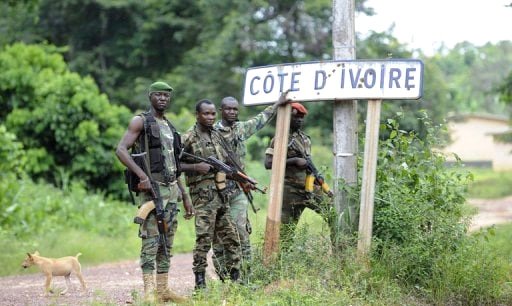Ivory Coast is rapidly scaling up its security presence along its northern border with Mali following what officials describe as an “unusual flow” of asylum seekers fleeing targeted attacks on civilians by armed groups. Following an emergency meeting on Thursday, the National Security Council instructed the country’s military leadership to deploy reinforced security measures and accelerate the registration of the incoming displaced population.
The sharp rise in refugees is directly attributed to the escalating insurgency in neighboring Mali. A government statement indicated the movement is “reportedly due to attacks on civilians by Armed Terrorist Groups in several localities in southern Mali.” The surge marks a critical escalation for Ivory Coast, a major West African economy that has largely avoided the worst of the regional instability until recently.
The JNIM Threat and Southern Advance
While the Ivorian government did not explicitly name the perpetrators, the primary militant force operating in the region is the al-Qaeda-affiliated coalition, Jama’at Nusrat al-Islam wal-Muslimin (JNIM). JNIM has been expanding its footprint, notably advancing in western and southern Mali toward the Ivorian frontier.
This expansion has not only created a refugee crisis but has also been marked by economic warfare. In September, JNIM announced a major fuel blockade targeting the Malian capital, Bamako, by attacking convoys and essential transit routes from coastal countries like Ivory Coast and Senegal.
This blockade has caused severe fuel shortages in Bamako, resulting in long queues at petrol stations and temporarily forcing schools and some businesses to close, further illustrating the militants’ capacity to exert control and pressure the military-led government.
The conflict in the Sahel has been simmering for over a decade, but the southward push of militants into the previously stable coastal states, including Ivory Coast, Togo, and Benin, represents a significant threat to regional stability.
Humanitarian Impact: The increase in arrivals will strain Ivorian resources, which were already hosting approximately 70,000 asylum seekers as of May 2025, according to UNHCR data.
Preventative Investment: Ivory Coast and other coastal nations have been investing heavily in military and security infrastructure along their northern belts to create a buffer zone and prevent the spillover of the insurgency that has already displaced millions and ravaged the economies of Mali, Burkina Faso, and Niger.
Malian authorities have tried to downplay the crisis, with the Foreign Minister dismissing the notion that the jihadists could soon seize the capital, Bamako. Nevertheless, the recent displacement of hundreds of people from towns near the Ivorian border, such as Loulouni (only about 50 kilometers away), underscores the imminent security risk faced by Ivory Coast.
Ramaphosa to Address ‘Empty US Chair’ While Battling to Shield $26 Billion Trade Tie
Source:Africa Publicity








